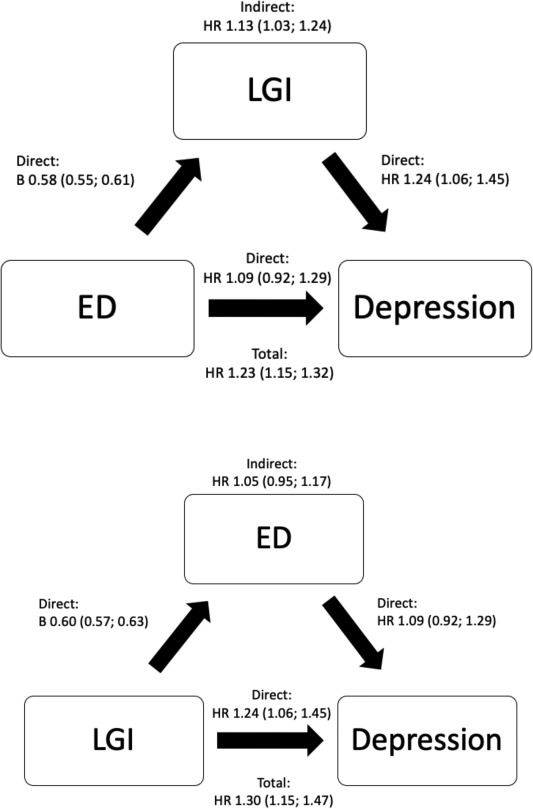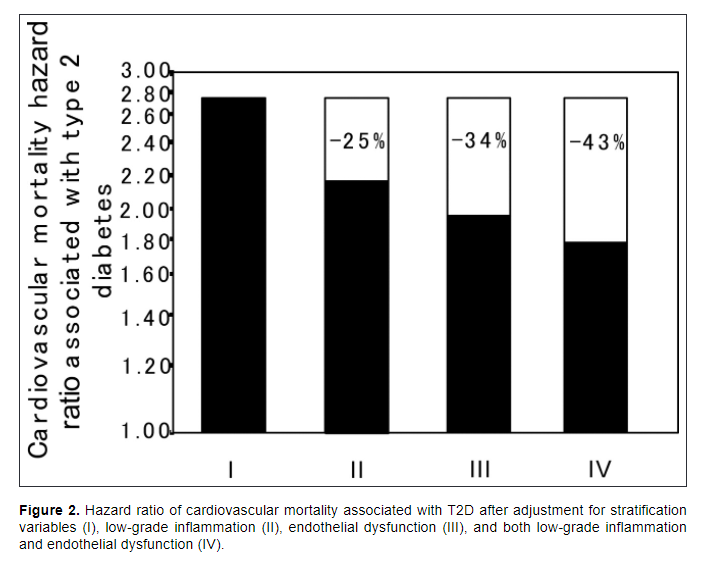Low-grade inflammation and endothelial dysfunction predict four-year risk
- heartlung
- Jan 16, 2023
- 2 min read
Updated: Jan 18, 2023
and course of depressive symptoms: the Maastricht Study
Brain Behav Immun 2021 Jun 26
Low-grade inflammation and endothelial dysfunction predict four-year risk and course of depressive symptoms: the Maastricht Study
Eveline P C J Janssen 1, Sebastian Köhler 2, Anouk F J Geraets 3, Coen D A Stehouwer 4, Nicolaas C Schaper 5, Simone J S Sep 6, Ronald M A Henry 4, Carla J H van der Kallen 4, Casper G Schalkwijk 4, Annemarie Koster PhD 7, Frans R Verhey 2, Miranda T Schram 8
Abstract
Background: Low-grade inflammation (LGI) and endothelial dysfunction (ED) might play a key role in the development of depression. We investigated the associations and mediation of LGI and ED with four-year incidence and course of depressive symptoms (remitted, recurrent or persistent).
Design, setting, participants, measurements: In this prospective cohort study (mean age 59.6±8.2 years, 48.9% women, 26.6% diabetes by design), Cox and multinomial regression analyses, adjusted for age, sex, educational level and diabetes status were used to investigate the associations of LGI and ED with onset and course of depressive symptoms as assessed by the PHQ-9 questionnaire.
Results: During 10,847 person-years of follow-up, 264 participants developed incident depression. Higher levels of LGI (OR [95%CI] per SD 1.32[1.16-1.49],p<0.001) and ED (1.26[1.11-1.43],p<0.001) were associated with incident depressive symptoms. In mediation analysis, 60% of the total effect of ED with incident depressive symptoms could be attributed to LGI. 76 out of 2637 participants had a persistent course of depressive symptoms. Higher levels of LGI (1.75[1.40-2.19],p<0.001) and ED (1.33[1.04-1.71],p=0.021) were associated with a persistent course of depressive symptoms. Higher ED was more strongly associated with persistent depressive symptoms (1.33[1.04-1.71],p=0.021), while LGI was associated with remission of depression symptoms.
Conclusions: LGI and ED were both associated with incident depressive symptoms, where the latter association was substantially mediated by LGI. ED was further associated with a persistent course of depressive symptoms, while LGI was not. These results suggest a temporal, vascular contribution of both LGI and ED to the etiology and chronicity of depressive symptoms.
Keywords: PHQ-9, etiology; depressive disorder; endothelial dysfunction; low-grade inflammation; prospective.


A Similar Study: Endothelial Dysfunction and Low-Grade Inflammation Explain Much of the Excess Cardiovascular Mortality in Individuals With Type 2 Diabetes —The Hoorn Study Jolien de Jager, Jacqueline M. Dekker, Adriaan Kooy, Piet J. Kostense, Giel Nijpels, Rob J. Heine, Lex M. Bouter, and Coen D.A. Stehouwer

Comments